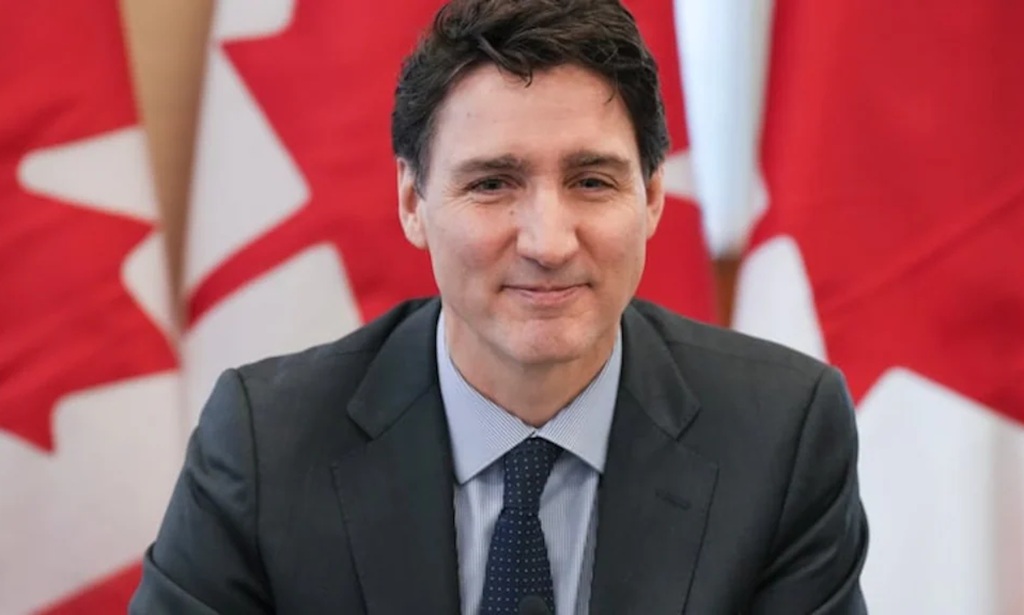Politics
Trudeau Accused of Using Trump Tariffs for Political Gain

Following President Donald Trump’s announcement of new tariffs on Canadian goods on Saturday, trade relations between the United States and Canada have deteriorated, causing economic repercussions.
In response, Prime Minister Justin Trudeau of Canada seemed to take the moral high ground, but many are wondering if he is actually the victim or just using the situation for political gain.
Trump’s decision to levy a 25% tariff on Canadian imports and a 10% tariff on energy products was associated with allegations of drug trafficking, illegal immigration, and national security.
Trump used emergency powers to circumvent formal USMCA trade rules and blame Canada and Mexico for being major contributors to the fentanyl crisis in North America.
This action has sparked discussions. Despite the United States’ reference to the International Emergency Economic Powers Act, detractors contend that the administration’s justification is unrelated to trade.
Instead of offering a negotiated solution, the policy creates the conditions for an economic impasse.
Counter Tariffs from Canada
Trudeau declared 25% counter-tariffs on about $155 billion worth of US goods, emphasizing $30 billion in exports, including cosmetics, motorcycles, and wine.
Following a consultation period, more tariffs on agricultural and automotive goods will be imposed. He defended the action as “measured but forceful,” calling on Canadians to stand together.
Canada will inevitably experience immediate economic blowback. Higher import costs due to tariffs may eventually trickle down to consumers.
Businesses that depend on US products, like the auto industry, may experience layoffs or declining profit margins. Furthermore, analysts estimate that Canada’s GDP may decline by 4.1% during the first year of these tariffs.
In the meantime, Americans will not escape unscathed. Higher import taxes will probably result in higher prices for Canadian goods, including groceries and appliances, as the cost is passed on to customers.
Companies that depend on international trade might struggle to withstand financial shocks. At a time when international trade stability is vital, the growing trade war also risks deteriorating US-Canadian ties.
Political Posturing
Trudeau’s strategy portrays Canada as a victim of Trump’s conflict with allies. He speaks directly to Americans, emphasizes longstanding military ties, and denounces what he describes as “punishment over partnership.”
Critics, however, see this as political posturing.
Trudeau has been criticized for allegedly using Trump’s tariffs as a political ploy to gain support at home by portraying Canada as the underdog.
He hopes to improve his party’s standing with important voter groups by advocating for Canadian industries against US trade policies.
However, some Canadians attribute the escalation of tariff disputes with the United States to Trudeau’s anti-Trump rhetoric. They contend his outspoken criticism of Trump backfired, making talks more difficult.
Opponents contend that this strategy prioritizes optics over solutions because it risks escalating hostilities rather than achieving lasting solutions. Despite being politically advantageous, the retaliatory tariffs may drive away important US companies and worsen the economic effects on smaller exporters.
Conversely, Trump’s defence of the tariffs is also under investigation. Although the fentanyl crisis is a serious problem, it is implausible to associate it with trade with Canada. This reasoning undermines US legitimacy by implying that political calculations, rather than substance, drive US actions.
Trump’s hardline stance appeals to some US voter bases, but he is unlikely to gain support in Canada. The tariffs indicate a “tough on trade” stance to appeal to Americans who are angry about perceived economic disadvantages.
The ongoing tariff dispute involves more than economics; it also involves rhetoric, leadership, and strategy. Although Trudeau’s victimization narrative might inspire Canadians, it risks oversimplifying Canada’s place in the larger trade system.
Similarly, Trump’s tariff policy seems useless in a situation that might call for a scalpel. The average worker, whether American or Canadian, currently suffers the most. And both nations might end up worse off if this economic struggle doesn’t result in a compromise.